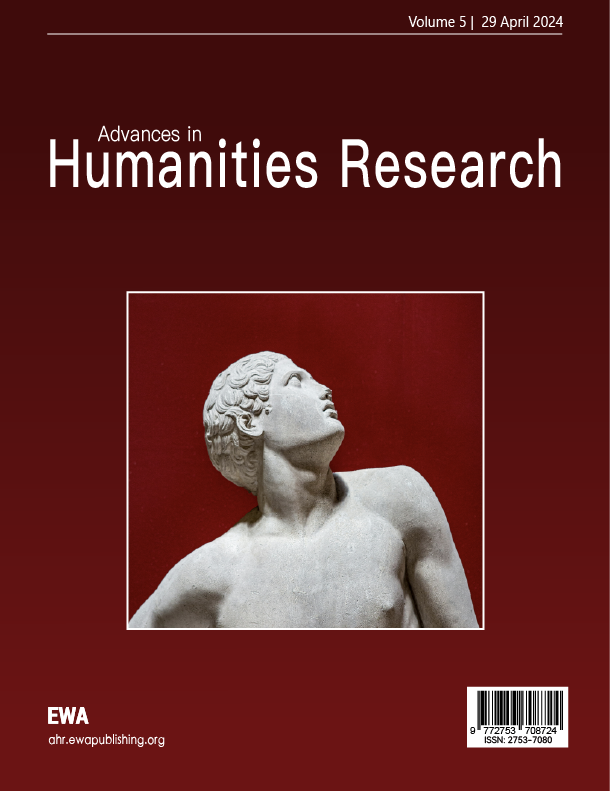References
[1]. Barrett, P. (2020). Disinformation and the 2020 election: How the social media industry should prepare. NYU Stern Center for Business and Human Rights. https://www.stern.nyu.edu/experience-stern/faculty-research/disinformation-and-2020-election-how-social-media-industry-should-prepare
[2]. O’Regan, C., & Theil, S. (2021). Hate speech regulation on social media: A contemporary challenge. Research Outreach, (125), 112–115.
[3]. Schoenebeck, S., & Blackwell, L. (2021). Reimagining social media governance: Harm, accountability, and repair. Yale Law School Center for Justice. DOI:10.2139/ssrn.3895779
[4]. Barrett, P., Hendrix, J., & Sims, J. (2021). Regulating social media: The fight over Section 230—and beyond. NYU Stern Center for Business and Human Rights. https://www.stern.nyu.edu/experience-stern/faculty-research/regulating-social-media-fight-over-section-230-and-beyond
[5]. United Nations. (2021). Countering disinformation: Promoting information integrity. United Nations Department of Global Communications.
[6]. Barrett, P. (2021). Fueling the fire: How social media intensifies U.S. political polarization—and what can be done about it. NYU Stern Center for Business and Human Rights.
[7]. Velásquez, N., Leahy, R., Restrepo, N. J., Lupu, Y., Sear, R., Gabriel, N., Jha, O., Goldberg, B., & Johnson, N. F. (2020). Hate multiverse spreads malicious COVID-19 content online beyond individual platform control. arXiv preprint arXiv:2004.00673.
[8]. Barrett, P. (2021). False accusation: The unfounded claim that social media companies censor conservatives. NYU Stern Center for Business and Human Rights.
[9]. UNESCO. (2023). Guidelines for the governance of digital platforms: Safeguarding freedom of expression and access to information through a multi-stakeholder approach. United Nations Educational, Scientific and Cultural Organization.
[10]. OECD. (2023). Disinformation and misinformation: Tackling the spread of false content. Organisation for Economic Co-operation and Development.
Cite this article
Zhang,X.;Cheng,X. (2025). The digital boundaries of free speech: legal interventions on hate speech and disinformation in the age of social media. Advances in Humanities Research,12(2),113-117.
Data availability
The datasets used and/or analyzed during the current study will be available from the authors upon reasonable request.
Disclaimer/Publisher's Note
The statements, opinions and data contained in all publications are solely those of the individual author(s) and contributor(s) and not of EWA Publishing and/or the editor(s). EWA Publishing and/or the editor(s) disclaim responsibility for any injury to people or property resulting from any ideas, methods, instructions or products referred to in the content.
About volume
Journal:Advances in Humanities Research
© 2024 by the author(s). Licensee EWA Publishing, Oxford, UK. This article is an open access article distributed under the terms and
conditions of the Creative Commons Attribution (CC BY) license. Authors who
publish this series agree to the following terms:
1. Authors retain copyright and grant the series right of first publication with the work simultaneously licensed under a Creative Commons
Attribution License that allows others to share the work with an acknowledgment of the work's authorship and initial publication in this
series.
2. Authors are able to enter into separate, additional contractual arrangements for the non-exclusive distribution of the series's published
version of the work (e.g., post it to an institutional repository or publish it in a book), with an acknowledgment of its initial
publication in this series.
3. Authors are permitted and encouraged to post their work online (e.g., in institutional repositories or on their website) prior to and
during the submission process, as it can lead to productive exchanges, as well as earlier and greater citation of published work (See
Open access policy for details).
References
[1]. Barrett, P. (2020). Disinformation and the 2020 election: How the social media industry should prepare. NYU Stern Center for Business and Human Rights. https://www.stern.nyu.edu/experience-stern/faculty-research/disinformation-and-2020-election-how-social-media-industry-should-prepare
[2]. O’Regan, C., & Theil, S. (2021). Hate speech regulation on social media: A contemporary challenge. Research Outreach, (125), 112–115.
[3]. Schoenebeck, S., & Blackwell, L. (2021). Reimagining social media governance: Harm, accountability, and repair. Yale Law School Center for Justice. DOI:10.2139/ssrn.3895779
[4]. Barrett, P., Hendrix, J., & Sims, J. (2021). Regulating social media: The fight over Section 230—and beyond. NYU Stern Center for Business and Human Rights. https://www.stern.nyu.edu/experience-stern/faculty-research/regulating-social-media-fight-over-section-230-and-beyond
[5]. United Nations. (2021). Countering disinformation: Promoting information integrity. United Nations Department of Global Communications.
[6]. Barrett, P. (2021). Fueling the fire: How social media intensifies U.S. political polarization—and what can be done about it. NYU Stern Center for Business and Human Rights.
[7]. Velásquez, N., Leahy, R., Restrepo, N. J., Lupu, Y., Sear, R., Gabriel, N., Jha, O., Goldberg, B., & Johnson, N. F. (2020). Hate multiverse spreads malicious COVID-19 content online beyond individual platform control. arXiv preprint arXiv:2004.00673.
[8]. Barrett, P. (2021). False accusation: The unfounded claim that social media companies censor conservatives. NYU Stern Center for Business and Human Rights.
[9]. UNESCO. (2023). Guidelines for the governance of digital platforms: Safeguarding freedom of expression and access to information through a multi-stakeholder approach. United Nations Educational, Scientific and Cultural Organization.
[10]. OECD. (2023). Disinformation and misinformation: Tackling the spread of false content. Organisation for Economic Co-operation and Development.









